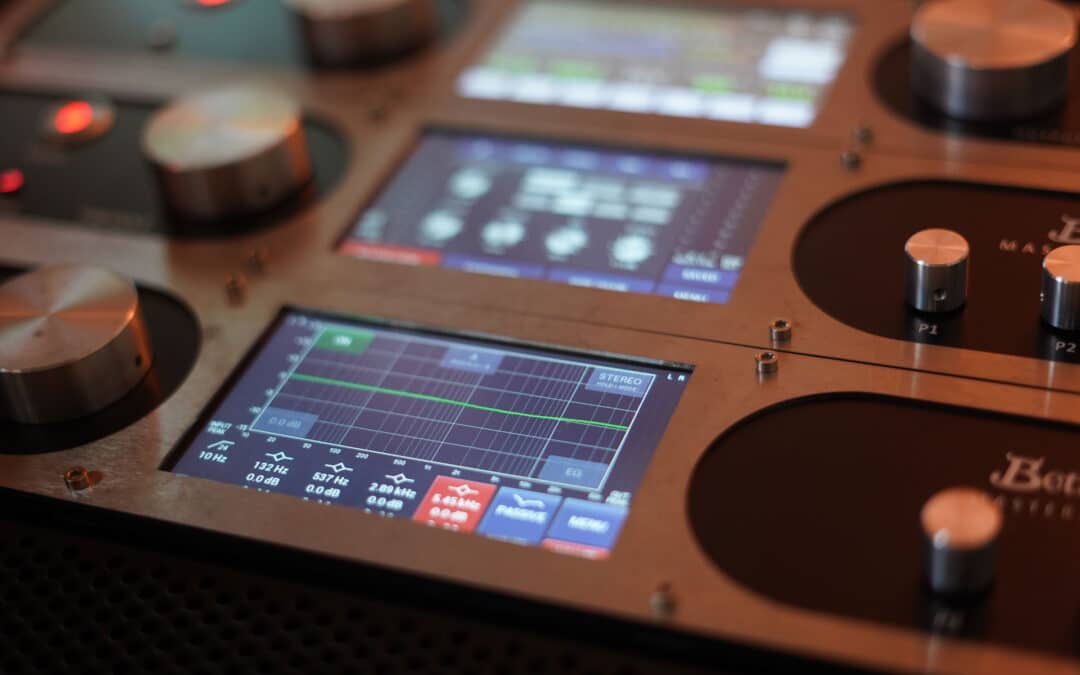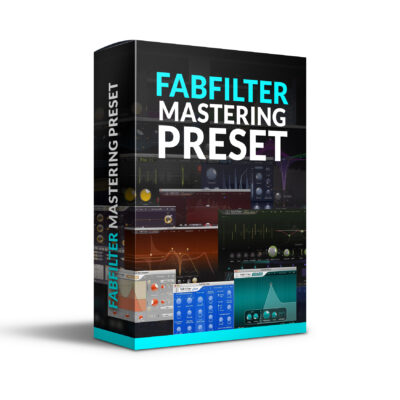Introduction
As an experienced music producer, I’ve come to appreciate the significant role that mastering engineers play in transforming raw recordings into polished, professional tracks ready for distribution. Hiring a mastering engineer can be a daunting task, especially with the myriad of options available today. However, with the right approach and understanding, you can find the perfect engineer to elevate your music. In this guide, I’ll share insights and practical tips on how to hire a mastering engineer, ensuring your music sounds its best across all platforms.
Understanding the Role of a Mastering Engineer
Mastering is the final step in the music production process, and it’s crucial for achieving a cohesive, balanced, and polished sound. The importance of a mastering engineer cannot be overstated. They ensure that your tracks sound great on any playback system, from high-end speakers to earbuds. Mastering engineers also prepare your tracks for various distribution formats, ensuring they meet industry standards for loudness and dynamics.
Key Responsibilities of a Mastering Engineer
A mastering engineer’s responsibilities include:
- Equalization (EQ): Adjusting the balance of frequencies to ensure a clear and pleasant sound.
- Compression: Controlling the dynamic range to make sure all parts of the track are audible without distortion.
- Stereo Enhancement: Enhancing the stereo image to create a sense of space and depth.
- Sequencing and Spacing: Arranging the tracks in the correct order and adding appropriate gaps between them.
- Finalizing Formats: Preparing the final master in formats suitable for different distribution channels, including CD, vinyl, and digital platforms.
Mastering engineers also ensure that the final product is consistent in tone and volume, giving your music a professional edge.
Essential Skills and Qualifications
Technical Proficiency
One of the most critical aspects of a mastering engineer’s skill set is their technical proficiency. They must be adept with digital audio workstations (DAWs) such as Pro Tools, Logic Pro, or Ableton Live. Familiarity with mastering-specific software like iZotope Ozone or Waves plugins is also essential. Understanding the intricacies of audio processing tools, from equalizers to limiters, is crucial for achieving the desired sound.
Experience and Portfolio
Experience is a significant factor when hiring a mastering engineer. An experienced engineer brings a wealth of knowledge and a refined ear that can make a substantial difference in the quality of your music. Reviewing their portfolio is an excellent way to gauge their expertise. Listen to samples of their previous work, paying close attention to the clarity, balance, and overall sound quality. An impressive portfolio is often a good indicator of an engineer’s capability.
Creative Skills
Mastering is not just a technical process; it also requires a creative touch. A skilled mastering engineer can enhance the emotional impact of your music, ensuring it resonates with listeners. They should have a good sense of musicality and the ability to make artistic decisions that enhance the track without compromising its integrity. Creative problem-solving is also vital, as they often need to address issues that were not resolved during the mixing stage.
Identifying Your Needs
Genre-Specific Expertise
Different genres of music require different mastering techniques. For instance, mastering a rock track involves different challenges compared to an electronic or classical piece. When hiring a mastering engineer, it’s important to find someone with expertise in your genre. They will be familiar with the stylistic nuances and industry standards specific to that genre, ensuring your music sounds as intended.
Project Scope and Requirements
Before you start looking for a mastering engineer, it’s crucial to define the scope of your project. Determine how many tracks need mastering, the desired turnaround time, and any specific requirements you have. This clarity will help you communicate your needs effectively and find an engineer who can meet your expectations.
Budget Considerations
Budget is a critical factor when hiring a mastering engineer. Rates can vary widely based on the engineer’s experience, reputation, and the complexity of the project. It’s important to establish a budget that balances your financial constraints with the need for high-quality mastering. Remember, investing in a skilled mastering engineer can significantly enhance the quality of your music, making it a worthwhile investment.
Researching Potential Candidates
Where to Find Mastering Engineers
Finding the right mastering engineer starts with knowing where to look. There are several avenues to explore, each offering a range of options to suit different needs and budgets.
Online Platforms and Resources
Several online platforms specialize in connecting musicians with mastering engineers. Websites like SoundBetter, AirGigs, and Fiverr offer directories of freelance engineers along with reviews, samples of their work, and pricing details. These platforms make it easy to compare different engineers and find one that fits your project requirements. Additionally, many engineers like myself have their own websites where you can learn more about their services and hear examples of their work.
Industry Recommendations
Networking within the music industry can be incredibly valuable when searching for a mastering engineer. Ask for recommendations from producers, musicians, and industry professionals you trust. Personal referrals often come with firsthand insights into the engineer’s working style and reliability. Attending industry events, such as music conferences and trade shows, can also provide opportunities to meet engineers and learn about their services.
Evaluating Credentials and Experience
Once you have a list of potential candidates, the next step is to evaluate their credentials and experience. This process involves reviewing their portfolios, checking references, and understanding their workflow.
Reviewing Portfolios
A comprehensive review of an engineer’s portfolio is essential. Listen to a variety of their previous work, paying close attention to the consistency and quality across different tracks. Consider how their mastering style aligns with your musical vision. Look for engineers who have worked on projects similar to yours, as this indicates they understand the specific requirements and challenges of your genre.
Checking References
Contacting references provided by the engineer can offer additional insights into their professionalism and work ethic. Ask previous clients about their experience working with the engineer, the quality of communication, and their overall satisfaction with the mastering process. This step helps you gauge the reliability and expertise of the engineer from a client’s perspective.
Understanding Their Workflow
Each mastering engineer has a unique workflow. Understanding their process, from initial consultation to final delivery, can help you determine if their approach aligns with your project needs. Discussing their methods ensures that you have a clear understanding of how they work and what to expect during the mastering process.
Conducting Interviews
Important Questions to Ask
Before finalizing your choice, conducting interviews with potential mastering engineers is crucial. Prepare a list of questions to ask during these interviews. Here are some important areas to cover:
- Experience with Similar Projects: Inquire about their experience with projects similar to yours in terms of genre and scope. Ask for specific examples and listen to those tracks if possible.
- Preferred Tools and Techniques: Understanding the tools and techniques they use can give you insight into their approach to mastering.
- Availability: Confirm their availability to ensure they can meet your deadlines. Ask about their typical turnaround time for projects similar to yours.
Assessing Communication Skills
Effective communication is key to a successful mastering process. Ensure the engineer is responsive and listens to your concerns. Their ability to articulate their approach clearly and provide explanations in understandable terms is crucial. Good communication skills facilitate a productive working relationship and help prevent misunderstandings.
Evaluating Problem-Solving Abilities
Mastering often involves addressing unforeseen issues that arise during the process. An engineer’s ability to solve problems creatively and efficiently is essential. Discuss hypothetical scenarios to gauge their problem-solving skills and how they handle challenges. Their ability to think on their feet and adapt to unexpected situations can significantly impact the final product.
Trial Projects and Tests
Setting Up a Trial Project
Before committing to a full project, consider setting up a trial run. Provide the engineer with a single track for mastering and evaluate the results. This trial project helps you assess the engineer’s compatibility with your vision and working style without a significant investment.
Evaluating the Test Results
Listen critically to the trial project results. Pay attention to the clarity, balance, and overall enhancement of the track. Use this evaluation to decide whether the engineer meets your quality standards and expectations. Discuss any feedback or adjustments needed to see how the engineer responds to your input.
Making an Informed Decision
Based on the trial project and interview, make an informed decision about hiring the mastering engineer. Ensure that they align with your artistic vision, technical requirements, and budget constraints. This thorough evaluation process increases the likelihood of a successful collaboration.
Negotiating Terms and Contracts
Understanding Standard Rates
When it comes to hiring a mastering engineer, understanding the standard rates in the industry is crucial. Rates can vary widely based on the engineer’s experience, reputation, and the complexity of your project. Generally, mastering engineers charge either a flat fee per track or an hourly rate. For instance, you might find rates ranging from $50 to $200 per track for less experienced engineers, while top-tier professionals can charge upwards of $500 per track. Hourly rates might range from $50 to $150, depending on the engineer’s expertise and the project’s demands.
To ensure you’re getting a fair deal, compare the rates of several engineers. Look at what is included in the price – some engineers may offer package deals that include multiple revisions, while others might charge extra for additional revisions or specific deliverables. It’s also worth considering the overall value, including the engineer’s experience and the quality of their previous work.
Setting Clear Expectations
Clear communication of expectations is key to a successful working relationship. When negotiating terms with a mastering engineer, outline all your requirements and expectations upfront. This includes:
- Deliverables: Specify what you expect as the final product. This could include high-resolution masters, DDP files for CD duplication, vinyl masters, and digital files for online distribution.
- Revisions: Agree on the number of revisions included in the price. It’s common for engineers to include one or two revisions in their fee, with additional revisions available at an extra cost.
- Turnaround Time: Discuss and agree on a timeline for the completion of the project. Ensure the engineer’s availability aligns with your schedule and any deadlines you need to meet.
- Communication: Establish preferred methods and frequency of communication. Regular updates can help keep the project on track and ensure any issues are addressed promptly.
Building a Strong Working Relationship
Establishing Clear Communication Channels
Effective communication is fundamental to a successful collaboration. At the outset, establish clear communication channels with your mastering engineer. Decide on the preferred methods of communication, whether it’s email, phone calls, or video meetings. Regular updates and feedback sessions help keep the project on track and ensure that any concerns are addressed promptly.
Setting Milestones and Deadlines
Setting realistic milestones and deadlines is crucial for managing time efficiently and ensuring timely delivery of the final product. Break down the project into manageable stages, such as initial consultation, submission of the first draft, review and revisions, and final delivery. Establishing these milestones helps both you and the engineer stay organized and on schedule.
Providing Constructive Feedback
Providing constructive feedback is essential for refining the mastering process and achieving the desired sound. Be specific about what you like and what needs improvement. For example, instead of saying “I don’t like the bass,” you could say, “The bass sounds too boomy around 80Hz, can we tighten it up?” Constructive criticism helps the engineer understand your preferences and make the necessary adjustments to meet your expectations.
Ensuring Quality Control
Regular Progress Checks
Regular progress checks are vital for maintaining quality control throughout the mastering process. Schedule periodic reviews to assess the progress and address any issues promptly. This proactive approach ensures that the final product meets your standards and allows for timely corrections if needed.
Final Review and Approval Process
Before approving the final master, conduct a thorough review. Listen to the mastered tracks on various playback systems, including high-end speakers, headphones, and car stereos. This ensures the tracks sound great across different listening environments. Once you’re satisfied with the quality, provide your final approval and proceed to the final delivery stage. It’s also a good practice to have a checklist to ensure all deliverables are met, and all tracks are consistent in terms of volume and quality.
Case Studies and Success Stories
Examples of Successful Collaborations
Highlighting case studies and success stories from previous collaborations can provide valuable insights and inspiration. For example, consider the case of Artist X who worked with a renowned mastering engineer and saw their album climb the charts. The engineer’s expertise in enhancing the album’s sound quality played a significant role in its success. These examples demonstrate the potential impact of professional mastering on your music.
Lessons Learned from Industry Professionals
Learning from industry professionals who have successfully worked with mastering engineers can offer practical tips. For instance, Producer Y emphasizes the importance of clear communication and setting realistic expectations from the outset. They also highlight the value of investing in a skilled mastering engineer, as it can make a significant difference in the final product’s quality and reception.
Common Pitfalls and How to Avoid Them
Miscommunication Issues
Miscommunication is one of the most common pitfalls in the mastering process. To avoid this, ensure that you and your mastering engineer are on the same page from the start. Clearly articulate your vision and provide detailed feedback throughout the project. Regular check-ins and progress updates can help prevent misunderstandings and keep the project on track.
Unrealistic Expectations
Having unrealistic expectations can lead to disappointment. Understand that mastering can enhance the quality of your tracks, but it cannot fix all issues that might have been introduced during recording or mixing. Be realistic about what mastering can achieve and ensure that your tracks are well-mixed before sending them to the mastering engineer.
Budget Overruns
Budget overruns can occur if there is not a clear agreement on the scope of work and costs upfront. To avoid this, establish a detailed contract that outlines all costs and includes provisions for any additional expenses that might arise. Regular communication and budget tracking can help keep the project within financial constraints.
How much does a mastering engineer typically charge?
The cost of hiring a mastering engineer varies widely based on their experience, reputation, and the complexity of your project. On average, you can expect to pay between $50 and $200 per track for a mid-level engineer, while top-tier professionals may charge upwards of $500 per track. Some engineers offer hourly rates, ranging from $50 to $150 per hour. It’s important to balance your budget with the need for high-quality mastering.
How long does the mastering process take?
The duration of the mastering process depends on several factors, including the number of tracks, the complexity of the project, and the engineer’s workload. Typically, mastering a single track can take anywhere from a few hours to a day. For a full album, the process might take several days to a couple of weeks. It’s crucial to discuss timelines with your engineer upfront and set realistic expectations.
What should I provide to my mastering engineer?
To ensure the best results, provide your mastering engineer with the following:
- Final Mixes: High-resolution audio files (usually in WAV or AIFF format) of your final mixes, ensuring they are free of any mastering effects like compression or limiting.
- Mix Notes: Any specific instructions or preferences for the mastering process, such as desired loudness levels or tonal adjustments.
- Reference Tracks: Examples of professionally mastered tracks that reflect the sound you’re aiming for.
- Project Details: Information about the project, including the track order and any special considerations for transitions between tracks.
How do I know if a mastering engineer is right for my project?
Choosing the right mastering engineer involves evaluating their experience, portfolio, and compatibility with your musical vision. Listen to their previous work, particularly in your genre, and assess whether their mastering style aligns with your preferences. Conduct interviews to gauge their communication skills and responsiveness. A trial project can also help determine if the engineer is a good fit for your project.
Can mastering engineers work remotely?
Yes, many mastering engineers offer remote services, making it possible to work with talented professionals from anywhere in the world. Remote collaboration involves sending your audio files and mix notes digitally. Engineers will then send back the mastered tracks for review and approval. This approach is convenient and often cost-effective, provided you maintain clear communication throughout the process.
What’s the difference between mixing and mastering?
Mixing and mastering are distinct stages in the music production process:
- Mixing: Involves blending individual tracks (vocals, instruments, etc.) to create a cohesive final mix. This process includes balancing levels, panning, adding effects, and adjusting the overall sound.
- Mastering: Is the final step, where the mixed track is polished to ensure it sounds great across all playback systems. This involves equalization, compression, stereo enhancement, and preparing the track for distribution.
Conclusion
Hiring a mastering engineer is a vital investment in the quality of your music. By understanding the role of a mastering engineer, identifying your needs, conducting thorough research, and communicating effectively, you can ensure a successful collaboration that enhances your music. Remember to set clear expectations, draft detailed contracts, and provide constructive feedback throughout the process. With these steps, you’ll be well on your way to achieving a professional sound that stands out in the competitive music industry.








